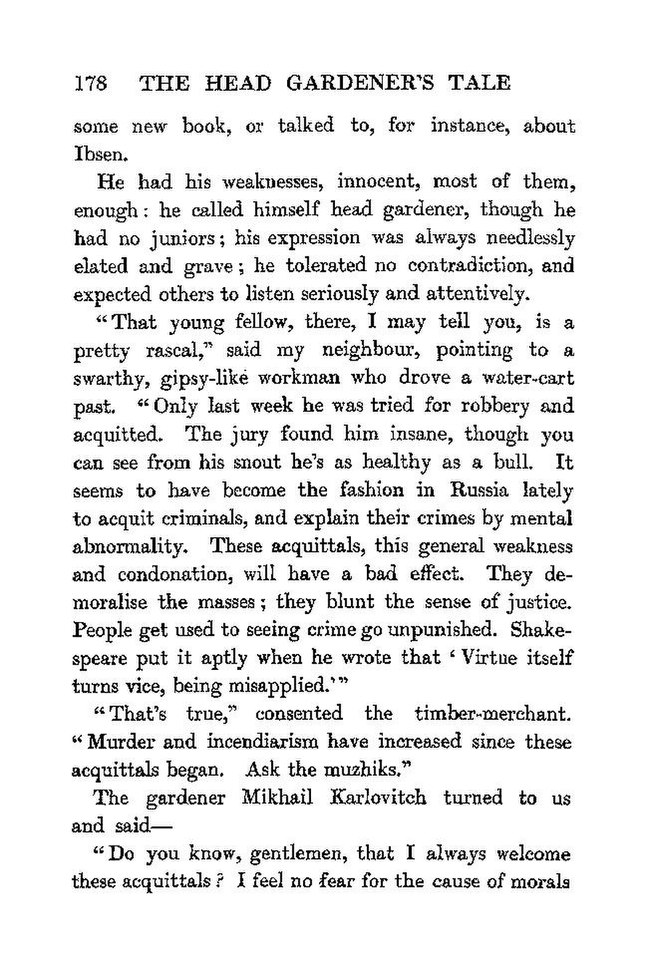some new book, or talked to, for instance, about Ibsen.
He had his weaknesses, innocent, most of them, enough: he called himself head gardener, though he had no juniors; his expression was always needlessly elated and grave; he tolerated no contradiction, and expected others to listen seriously and attentively.
“That young fellow, there, I may tell you, is a pretty rascal,” said my neighbour, pointing to a swarthy, gipsy-like workman who drove a water-cart past. “Only last week he was tried for robbery and acquitted. The jury found him insane, though you can see from his snout he's as healthy as a bull. It seems to have become the fashion in Russia lately to acquit criminals, and explain their crimes by mental abnormality. These acquittals, this general weakness and condonation, will have a bad effect. They demoralise the masses ; they blunt the sense of justice. People get used to seeing crime go unpunished. Shakespeare put it aptly when he wrote that ‘Virtue itself turns vice, being misapplied.’”
“That's true,” consented the timber-merchant. “Murder and incendiarism have increased since these acquittals began. Ask the muzhiks.”
The gardener Mikhail Karlovitch turned to us and said —
“Do you know, gentlemen, that I always welcome these acquittals? I feel no fear for the cause of morals
